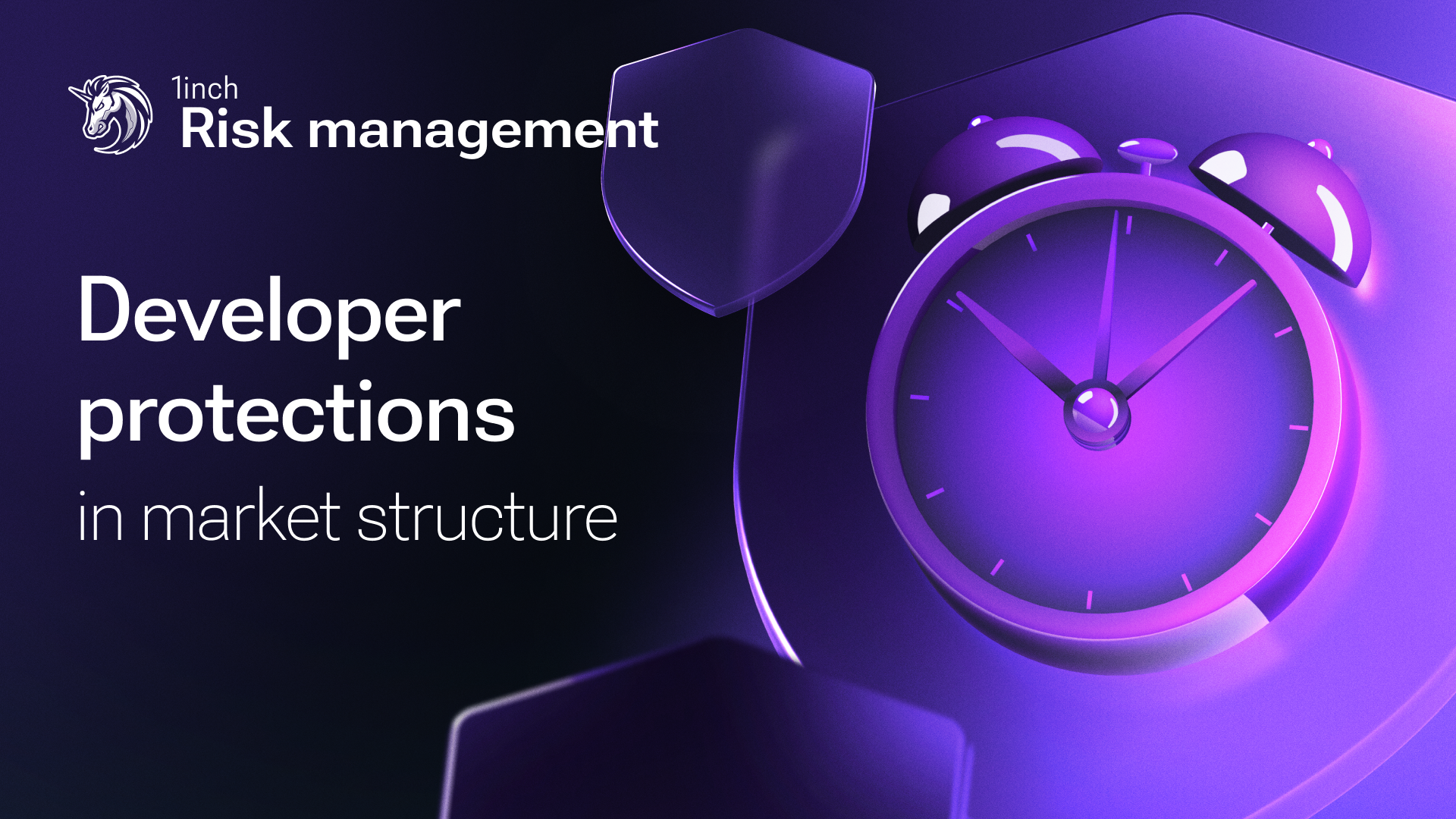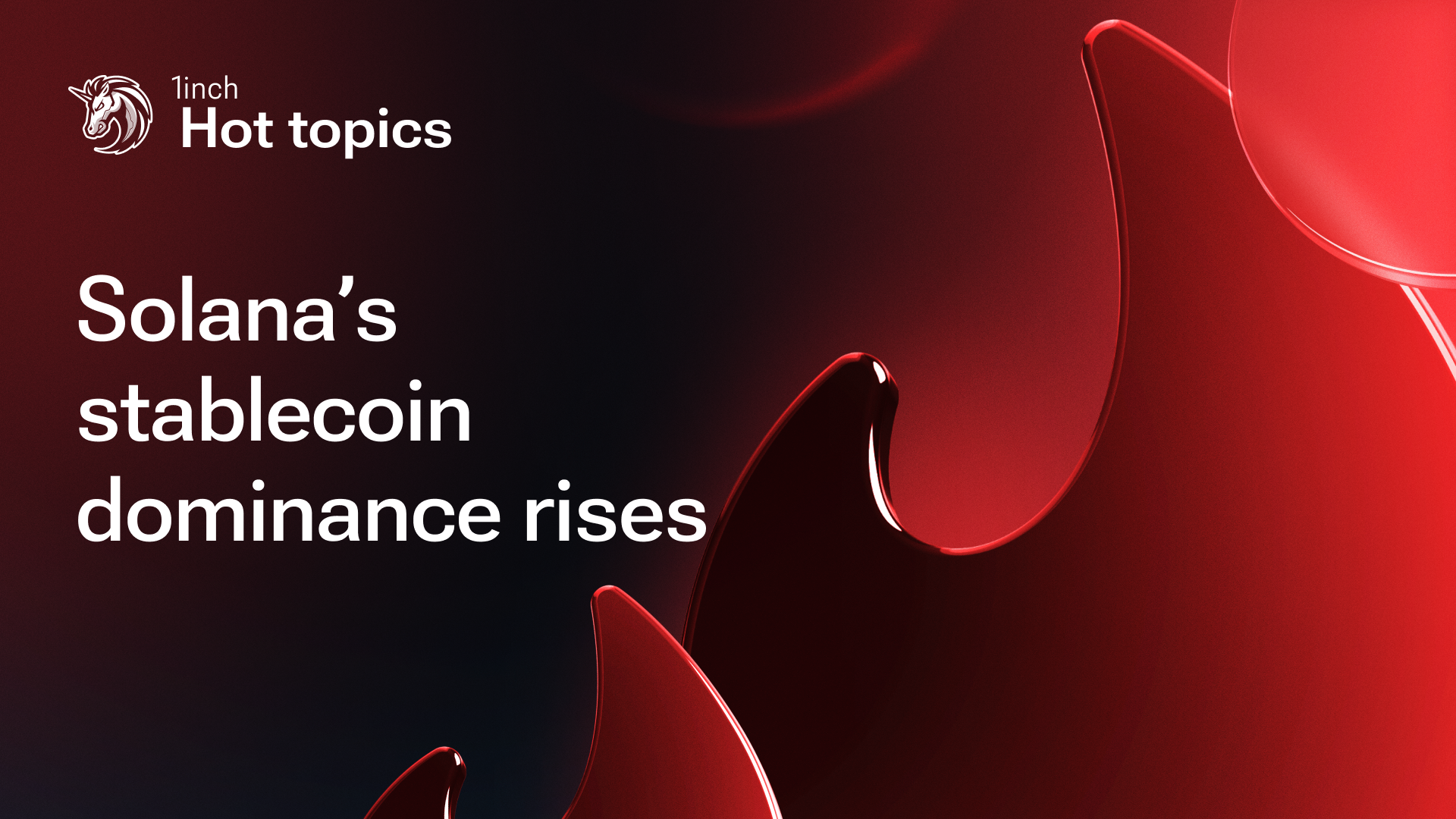1inch Davos conference: Sustainable crypto growth - 2025 and beyond

Here’s the first post in our series of highlights from Shaping Tomorrow’s Financial Landscape Through DeFi - the conference 1inch held at the World Economic Forum Annual Meeting in Davos on January 23.
At “Sustainable Crypto Growth – 2025 and Beyond”, our panelists focused on the prospects facing the crypto industry over the next few years.
Moderated by Jeff Ren, Chairman and CEO of OK Group, the panel featured 1inch co-founder Sergej Kunz joined by Eric Chiang, Venture Partner at WAGMI Ventures, Quynh Ho, head of GSR Venture, and Bill Papp, CEO of Polymesh.
Watch the full video of the panel!
The panelists were quick to highlight a key trend: the growing market share of decentralized crypto exchanges compared to CEXs.
"We predict that the DEX volume could probably flip or at least [grow to be] on par with the centralized volume at some point this year," said Quynh Ho, who also pointed to increased collaboration between various DeFi projects.
"In 2021 and 2022, there were a lot of projects built on different chains, and you could see different islands," she commented. "But now you see the point programs and then also collaboration between all the different applications."
According to Bill Papp, ordinary use cases for crypto are what matters most at the moment. "Today, it still costs 35 to 45 dollars to do an international wire and you might get it at the end of the day,” he said. “Or a domestic wire, which is roughly around 25 dollars or an ACH, which is between one to three days. But if you look at Ripple cross-border payments, along with other payment providers, that's significant to get those wire fees down for the regular person.”
“It's those types of use cases that are really going to push our industry forward with regulators, traditional finance folks and, more importantly, politicians,” he added.
Eric Chiang singled out several factors that would be crucial in bringing traditional financial institutions to the Web3 space.
“For our space to be sustainable, Web2 and smart money institutions have to get involved,” he explained. “And they care about only three things: security, liquidity and utility. We have come a long way over the past four years in terms of all three aspects. They're not really looking for [something] fancy or very high-yield. They're more interested in how we bridge between Web2 and Web3. That's what we should be focusing on in 2025.”
Discussing the state of established blockchain networks, the panel agreed that Bitcoin and Ethereum remain strong.
“I like the speed of development of the Ethereum blockchain,” Sergej Kunz observed. “And if you compare it with other blockchains like NEAR or TON or Solana, you get the feeling that these people who started to build alternatives to Ethereum, didn't take time to understand how Ethereum works. And they [made the same] mistakes, from my point of view, in terms of design or architecture.”
According to Sergej, Ethereum is still “the best environment where you can really build really nice, stable applications.”
Meanwhile, when it comes to the impact of decentralization beyond the financial world, the panelists turned out to be rather sceptical.
“I'm still a bit confused or skeptical about decentralization in the blockchain world,” said Eric Chiang. “Are we really decentralized? In terms of access, yeah, probably, right? A lot of things that we didn't have, we have now. But it's more innovation than decentralization.”
“We made a decision to push DeFi off to the first quarter of 2026 until you get the ability to keep custody, transfer, settle, buy, and sell on a blockchain,” noted Bill Papp.
“I think we still need some sort of centralization to make decisions, especially in the early days where things are still difficult,” added Quynh Ho. “And then over time, we'll get to that decentralization point.”
She added that there still are areas where decentralization could already be helpful, such as decentralized science and decentralized funding via tokens.
According to Sergej Kunz, decentralization is not and should not be applicable to all areas.
“It works very well with decentralized finance,” he said, adding that in other areas the use of this technology might have been unjustified.
As an example of how blockchain and decentralization could enhance efficiency, he cited national elections, which could become more transparent with blockchain technology.
“I'm not sure that every country would like to integrate something like this, but I hope some of them will start maybe in the next 10 years,” he concluded.
Explore the Web3 space with 1inch!




























